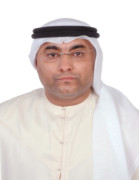
When we think about the current developments in science, technology and culture, one would recall the statements of three among the most famous individuals in the history:
“It has become appallingly obvious that our technology has exceeded our humanity.” Albert Einstein (1879 – 1955) “If we continue to develop our technology without wisdom or prudence, our servant may prove to be our executioner.”
Omar Bradley (US General, 1893-1981)
“Culture of the mind must be subservient to the heart.”
Mahatma Gandhi (1869 – 1948)
The attempts to comprehend the above statements within the current world conditions reflect some serious questions including — has technology become our facilitator or dominator? Do people use the knowledge of culture in order to realise the differences and similarities between each other or to engage in different aspects of social, economic and political conflicts?
Nowadays, it has become obvious that the world is undergoing an essential era of contradictory phases. On the one hand, science and technology have — on a daily basis — drastically progressed to a level that exceeds our expectations and needs.
Developments in all kinds of technology not only have given us a variety of choices but also have widened the horizons of creativity. Besides, the world has merged to become almost a small village where people in Australia, for instance, could easily recognise the cultural aspects of their peers in the Middle East using the internet and other advanced communication systems.
On the other hand, mankind is witnessing days of sorrow, stress and troubles because of the incidents we have been facing almost every day. For instance, the heavily armed gunman who opened fire at a movie theater in Aurora, Colorado, on July 20, killing at least 12 and wounding 38.
Also, most women are living in a condition of depression in many countries because of the lack of important political, social and economic rights. Then there is radicalism — ideas that have turned many into moveable suicide bombs causing chaos and tension. Last, but not least, social networks are being used as means of spreading destructive and negative ideas aiming at causing both instability in the community and clashes between rulers and people.
The above two sides of the current global situation reflect the challenge our societies are facing in creating the balance between what we take from the advancements in science, technology and culture and what we should give back to our women, children and community in general in order to prove that we have really evolved to the levels of prosperity, harmony, peace and equality for all human beings.
Dr Abdullah Al Shaiba Al Ali is a UAE national academic and thinker.








